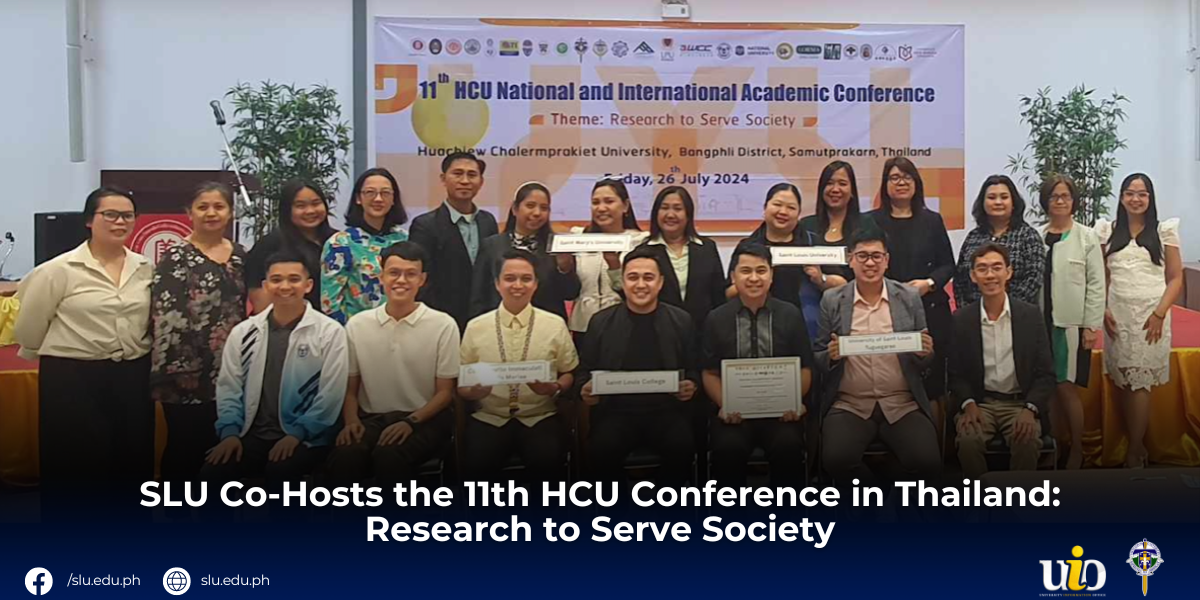On July 26, 2024, Saint Louis University (SLU) co-hosted the 11th Huachiew Chalermprakiet University (HCU) Conference in Thailand, marking another significant collaboration between the two institutions: HCU, Thailand and SLU, Baguio City Philippines. The event, themed “Research to Serve Society”, was co-organized by the University Research and Innovation Center (UNRIC) of SLU, with six faculty members flying to Thailand to participate in the face-to-face conference and present their research papers.
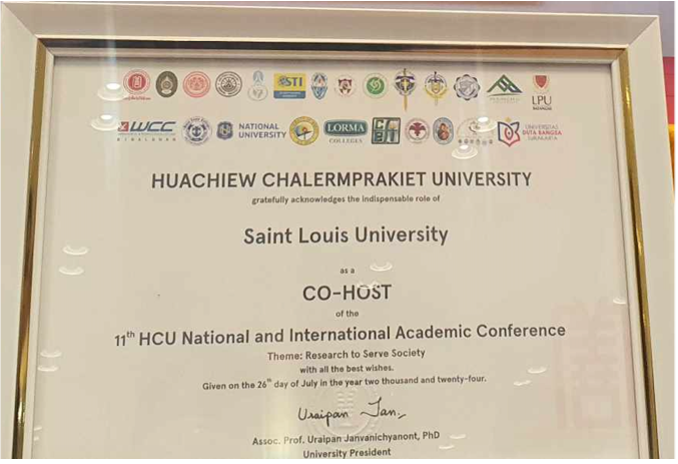
HCU invited member universities of the Congregation of the Immaculate Heart of Mary (CICM) Philippine Schools Network (PSN) namely, Saint Louis College (La Union), Saint Mary’s University (Bayombong), University of Saint Louis (Tuguegarao), and SLU (Baguio). The invitation underscored the collaborative efforts among these institutions.
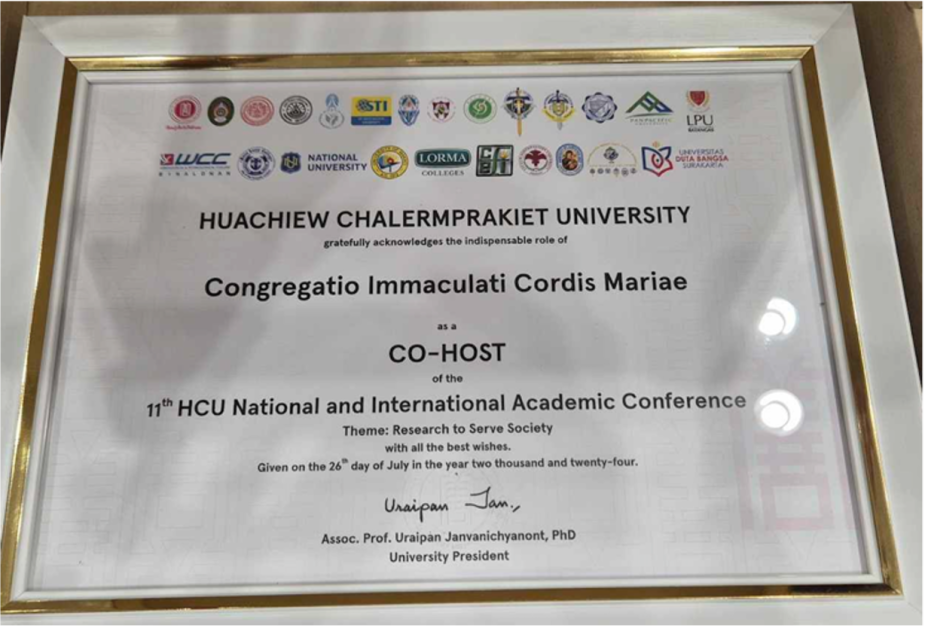
Dr. Stephenie Busbus, the Chair of the Institutional Reputation and Effectiveness Committee of SLU, delivered an impactful presentation that delved into Sustainable Development Goals (SDG) highlights of SLU, as well as the SDG Center and its mechanisms. The presentation also showed how SDGs are integrated in the trifocal functions and strategic directions of the university. On behalf of SLU, Dr. Busbus received the certificate for co-hosting the conference.
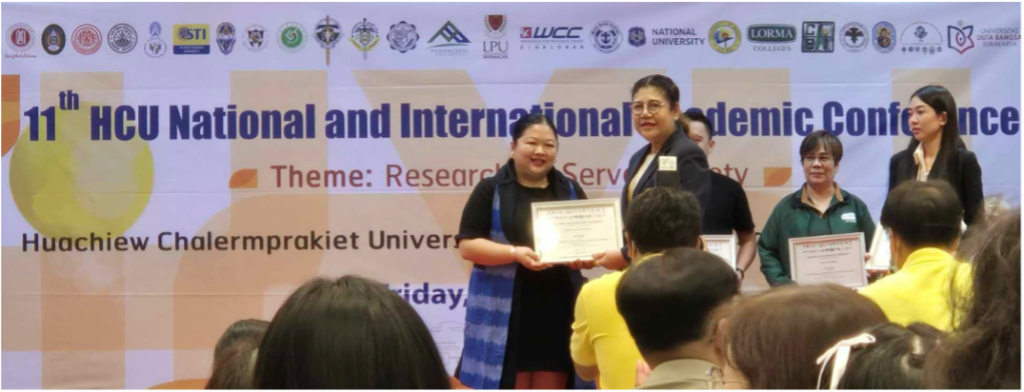
Four distinguished faculty research promoters from SLU, Ms. Clarita Sucilan (School of Teacher Education and Liberal Arts – STELA), Mrs. Rachelle Gay Pacial (School of Nursing, Allied Health, and Biological Sciences – SONAHBS), Dr. Genevive Antonio (SONAHBS), and Ms. Ma. Concepcion Clemente (School of Accountancy, Management, Computing and Information Studies – SAMCIS), proudly showcased their undergraduate research outputs.
Mrs. Clarita Sucilan presented “The Mediating Effect of Motivation on Personality and Flow State.” Two undergraduate students from STELA, Kahlil Michael Maximo and Raeza Aina Mallar, were given the opportunity to present their work, adding to the diverse array of presentations. The findings of the study shows that all Personality factors and Motivation factors, with the possible exclusion of Agreeableness in the personality facet, are possible predictors of flow through bivariate correlation. The strongest factors were shown to be Intrinsic Motivation, Conscientiousness, and Neuroticism through multiple regression analysis. Conscientiousness and Intrinsic Motivation formed a significant mediation model pathway explaining flow.
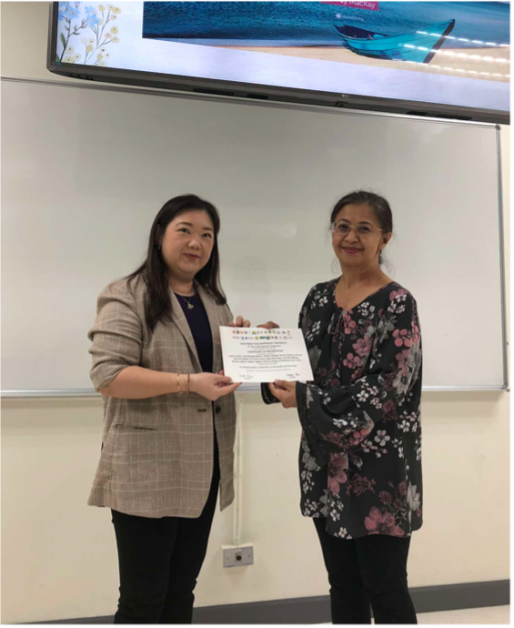
Mrs. Rachelle Gay Pacial then discussed “The Extent of Instructor Facilitation and Level of Satisfaction of Student Nurses on Self-Directed Learning.” The objective of the study was to evaluate how extensive the implementation of virtual simulations are and its importance according to nursing students. Also, it aimed to determine the level of satisfaction of nursing students with the virtual simulation and if this pedagogy can enhance their self-confidence.
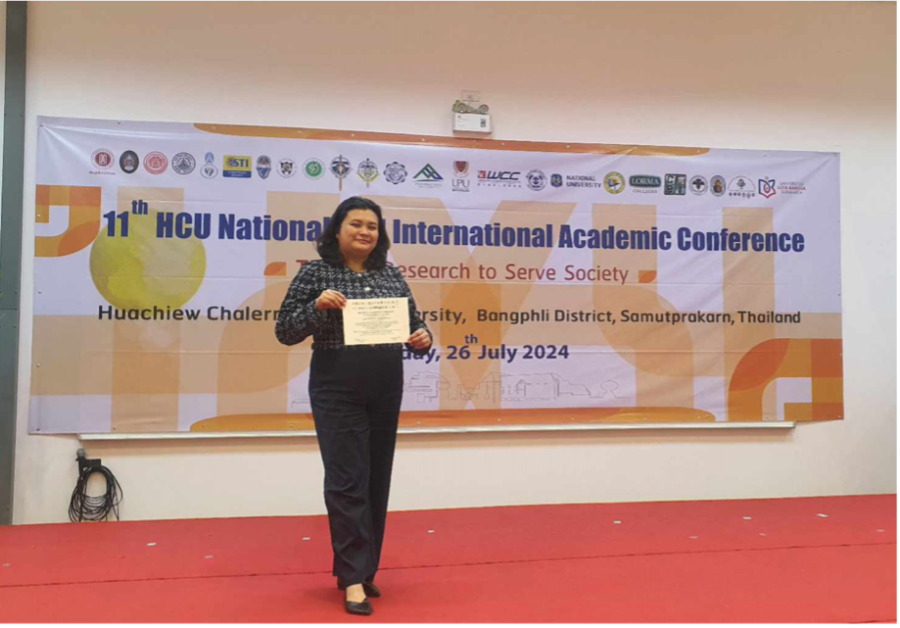
Dr. Genevive Antonio shared their study on “The Effect of NursePlay in the Critical Thinking Disposition of Student Nurses.” NursePlay is a 2D virtual gaming simulation created by the student researchers under the course Nursing Informatics. The study used a quasi-experimental design to BSN 2 students, which revealed an outstanding critical thinking disposition along the cognitive maturity and innovativeness of student nurses.
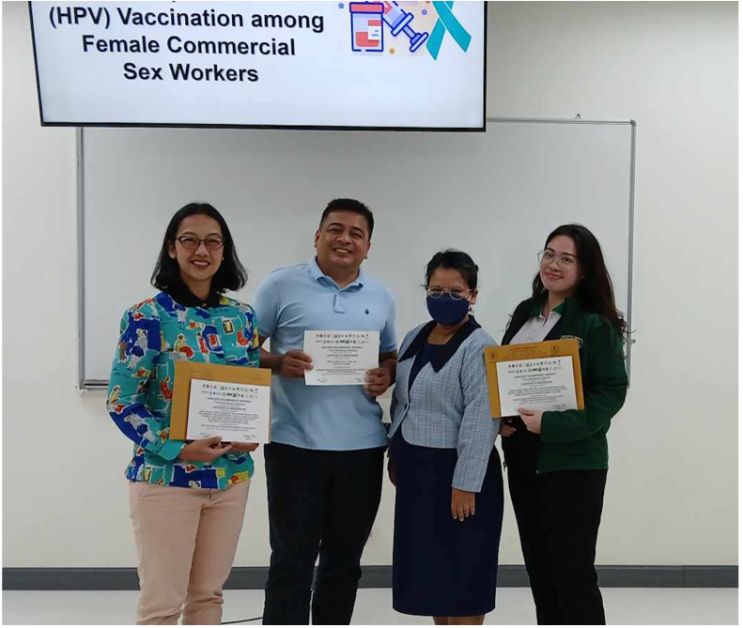
Ms. Ma. Concepcion Clemente introduced “Tani-Kalusugan-BlockVax: A Digitized Immunization Records System Using Blockchain Technology” – an architecture for a block-chain enabled Vaccination Records System (VRS), primarily focused on the vaccination process in the Philippine setting. Essential stages in the vaccination process were identified, along with the various components of the system and including their interactions. BlockVax, a Vaccination Records System, was developed by an undergraduate capstone project team from BSIT as proof of concept.
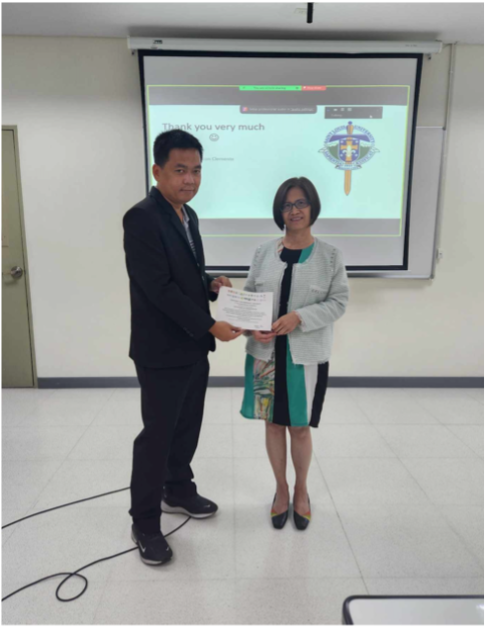
Engr. Florence Leslie Campolet presented her research output, which is also an extension project of CEOPO, entitled “Developing a GIS-Based Landslide Hazard Map for Kias, Baguio City, Philippines.” This study effectively demonstrated how integrating Geographic Information Systems (GIS) can enhance hazard mapping and address societal needs. By focusing on landslide hotspots triggered by typhoons, the research emphasized key elements such as geo-tagging and vulnerability mapping.
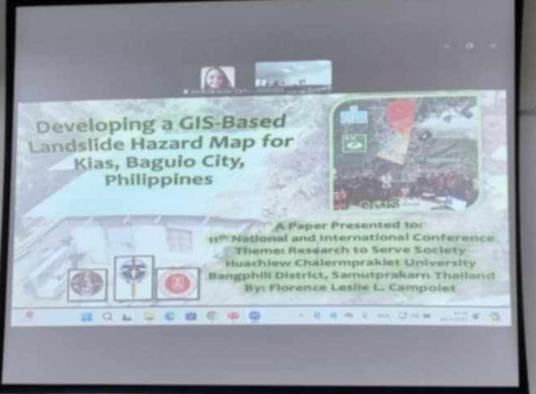
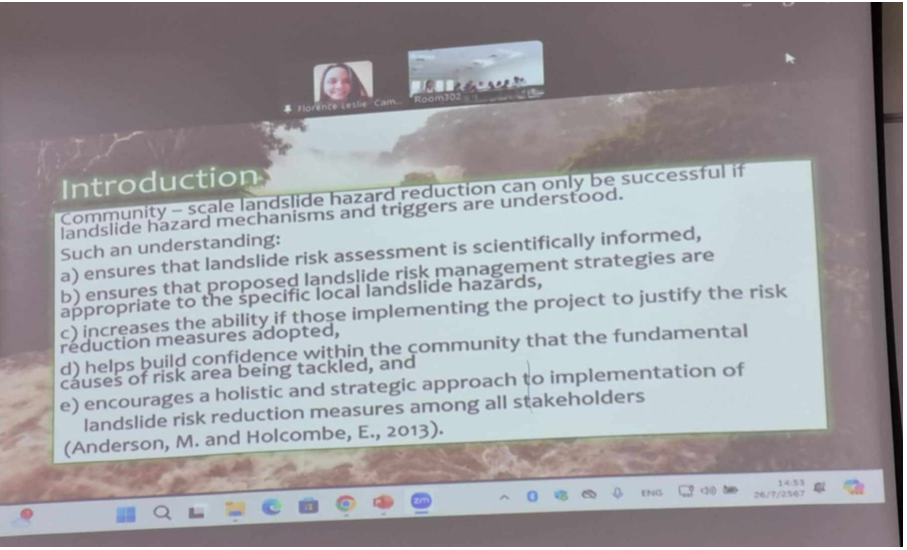
The participation of SLU in the 11th HCU Conference not only highlighted the university’s academic achievements but also strengthened its international collaborations and commitment to sustainable development. Such endeavore is aligned with SDG 4 (Quality Education) and 17 ( Partnership for the Goals). It also affirms the CICM advocacy of Justice, Peace, and Integrity of Creation. (Article by Dr. Laarni Natividad, Mrs. Clarita Sucilan, Mrs. Rachelle Gay Pacial, Dr. Genevive Antonio, Ms. Ma. Concepcion Clemente, Engr. Florence Leslie Campolete)

